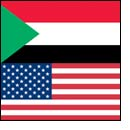Powell in Sudan’s Darfur, calls for end to militia
(Adds scene at camp for displaced people, Powell remarks, previous EL FASHER)
By Saul Hudson
 ABOU SHOUK, Sudan, June 30 (Reuters) – U.S. Secretary of State Colin Powell, disappointed at Sudan’s initial response to his demands on Darfur, called for an end to the militias blamed for the crisis in the region on Wednesday when he visited some of the one million people displaced by the conflict.
ABOU SHOUK, Sudan, June 30 (Reuters) – U.S. Secretary of State Colin Powell, disappointed at Sudan’s initial response to his demands on Darfur, called for an end to the militias blamed for the crisis in the region on Wednesday when he visited some of the one million people displaced by the conflict.
“We all want them (the displaced) to return to their homes and that will require the reestablishment throughout Darfur of security, the end of fighting, the end of the Janjaweed,” Powell told aid workers and Darfuris living in the Abou Shouk camp.
The Janjaweed are the Arab militias who have driven non-Arab villagers off the land in a campaign of ethnic cleansing which human rights groups say is verging on attempted genocide.
U.N. officials and the rights groups say the Sudanese army has worked with the Janjaweed but Khartoum says that they are outlaws and that it is determined to disarm them.
Thousands of displaced Darfuris cheered, trilled, clapped their hands and waved their walking sticks to welcome Powell on his 20-minute visit to the camp, which aid workers said was a show case and one of the best in the region.
The camp is only a few miles outside El Fasher, the capital of North Darfur state, in a region the size of France.
Powell came to Sudan on Tuesday evening to press the government to crack down on the Janjaweed and allow relief groups unrestricted access to the region, which badly needs to receive food and medicine before the rainy season begins.
U.N. Secretray-General Kofi Annan arrived in Khartoum on a similar mission as Powell left for Darfur. The two leaders have warned Sudan of U.N. Security Council action.
But a senior U.S. State Department official said the Sudanese government did not see the gravity of the humanitarian crisis, which the United Nations calls the worst in the world.
“They are in a state of denial. They are in a state of avoidance. They are trying to obfuscate and avoid any consequences,” said the official, who asked not to be named.
DEMAND FOR ACTION
To add to the international pressure, the United States plans to share the draft of a U.N. Security Council resolution on Darfur with other members in New York on Wednesday, he added.
For most of his flight to Darfur, Powell held talks with Sudanese Foreign Minister Mustafa Osman Ismail on how to deal with the Darfur crisis. In Khartoum on Tuesday evening Powell met Sudanese President Omar Hassan al-Bashir.
Bashir has promised to disarm the Janjaweed and give the relief organisations access to the region.
But the senior U.S. official said: “He (Bashir) has said these things before. We’ll have to see what they actually do.”
Powell drove around El Fasher in a special four-wheel-drive vehicle especially flown in from Washington for his three-hour visit. The Sudanese army provided an escort in the form of pickup trucks with machineguns mounted on the back.
Powell stopped to meet truce monitors from the African Union and the commander told him that the group had no substantiated reports of ceasefire violations in the past month.
But a monitor from the Sudan Liberation Army, one of two rebel groups in Darfur, said that the Sudanese military had bombed villages in recent days and Janjaweed had then attacked on the ground — a frequent pattern suggesting coordination.
At the main Khartoum University campus, 22 students were injured in clashed with riot police after a group of students tried to deliver a letter to U.N. offices appealing for direct U.N. intervention in Darfur.
“When they got about 300 metres (yards) from the U.N. building, police intercepted them, began hitting them, firing at them, and they released teargas,” said Wael Taha, a member of the Khartoum University student union.
The conflict in Darfur has spread into neighbouring Chad and Chadian President Idris Deby said on Tuesday that more than 300 civilians had been killed in cross-border raids.
“If the phenomenon of these raids … is not brought under control, I strongly fear that we will have to take measures allowing us to guarantee a minimum level of security for refugees and Chadians,” he said. “(But) I do not want armed conflict with Sudan,” he added.
(Additional reporting by Nima Elbagir in Khartoum and Betel Miarom in N’Djamena)
